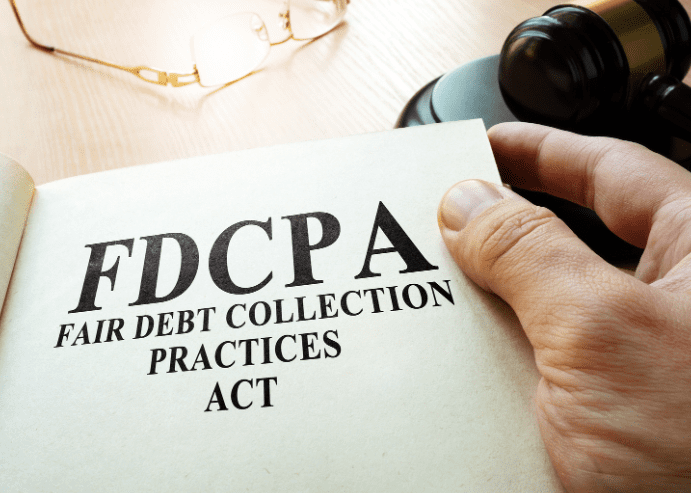What is the Fdcpa act?

The Fair Debt Collection Practices Act (FDCPA) plays a crucial role in protecting consumers from unfair and abusive debt collection tactics. With mounting debt becoming a growing concern for many Americans, understanding the FDCPA Act is essential for individuals seeking to protect their rights and ensure fair treatment when dealing with debt collectors. In this blog post, we will delve into the FDCPA Act, its history, key provisions, and how it empowers consumers to fight back against debt collection abuses.
The Origins of the FDCPA Act
Enacted in 1977, the FDCPA addresses the rampant and concerning abuses in the debt collection industry. Prior to its passage, debt collectors often employed aggressive tactics, harassment, and deceptive practices to coerce individuals into repaying their debts. Recognizing the need for a legal framework to regulate debt collection, Congress introduced the FDCPA Act to provide consumers with a set of rights and protections.
Key Provisions of the FDCPA Act
Prohibition of Harassment and Abuse
One of the primary objectives of the FDCPA Act is to put an end to harassing and abusive debt collection practices. This law prohibits debt collectors from engaging in activities like excessive phone calling, using obscene language, or issuing false threats. These provisions aim to protect consumers from psychological distress and unfair treatment while dealing with their debts.
Validation of Debts
The FDCPA Act requires debt collectors to provide consumers with written notice of their debts within five days of their initial contact. This notice should include essential information, such as the amount owed, the name of the creditor, and the consumer’s rights to dispute the debt. It promotes transparency, enabling consumers to confirm the validity of the debts claimed against them.
Prohibition of False or Misleading Representations
It forbids debt collectors from using deceptive or misleading statements in their communications with consumers. They cannot, for example, falsely claim to be attorneys or government officials, threaten legal actions they do not intend to take, or misrepresent the amount owed. This regulation ensures that consumers are not tricked or pressured into paying more than what they owe.
Restriction on Communication
The FDCPA Act also regulates the timing and frequency of debt collection communications. Generally, debt collectors must not contact consumers at inconvenient times, specifically not before 8 a.m. or after 9 p.m. Furthermore, if a consumer requests that a debt collector cease communication, the collector must honor this request, except for specific actions like filing a lawsuit.
Right to Dispute a Debt
Consumers have the right to dispute a debt within 30 days of receiving the validation notice. If they dispute the debt in writing, the debt collector must cease collection efforts until they provide verification of the debt. This provision empowers consumers to challenge debts they believe to be inaccurate or unjust.
Legal Remedies
The FDCPA Act grants consumers the right to take legal action against debt collectors who violate its provisions. If a consumer prevails in court, they may be entitled to damages, attorney’s fees, and court costs. This provision serves as a powerful deterrent against abusive debt collection practices.
Why the FDCPA Act Matters
The FDCPA Act is crucial because it provides a legal framework that safeguards consumers from abusive and deceptive debt collection tactics. Here are some key reasons why understanding and utilizing the FDCPA Act is essential:
Protection of Consumer Rights
Ensures that consumers are treated fairly and respectfully throughout the debt collection process. It establishes a clear set of rules that debt collectors must follow, protecting consumers from harassment and abuse.
Verification of Debts
By requiring debt collectors to provide written notice of the debt, the FDCPA Act gives consumers an opportunity to verify the legitimacy of the debt. This prevents individuals from being unfairly targeted for debts they do not owe.
Empowerment
Knowing their rights under the FDCPA Act empowers consumers to assert themselves when dealing with debt collectors. It provides individuals with the confidence to dispute debts, seek validation, and take legal action if necessary.
Accountability
Holds debt collectors accountable for their actions. If a collector violates the law, consumers have legal recourse to seek damages and attorney’s fees. This accountability discourages abusive practices within the debt collection industry.
Credit Atty Can Help
Plays a pivotal role in protecting consumers from unfair and abusive debt collection practices. It ensures that individuals facing debt-related challenges have rights and legal protections they can rely on. Understanding the FDCPA Act and its key provisions is essential for anyone dealing with debt collectors. By being informed and aware of their rights, consumers can assert themselves, dispute debts, and seek justice when faced with unethical collection practices. In an era where debt is a prevalent issue, the FDCPA Act remains a crucial safeguard for consumers across the United States. Contact Credit Atty today if you are seeking relief from unfair credit acts and need help with your credit repair.